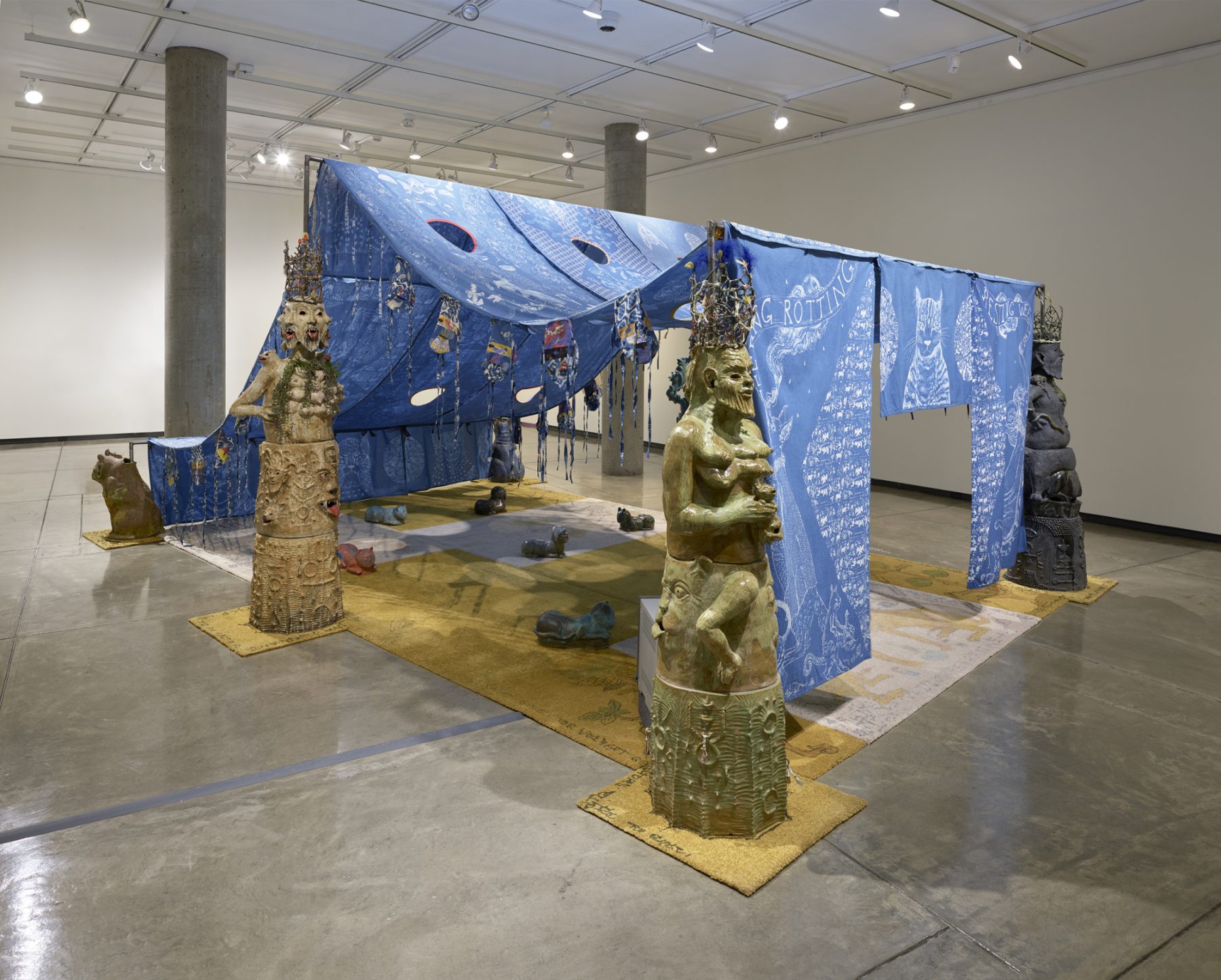This program happened on May 5, 2021.
Frieze Vision & Justice Tribute

The Carpenter Center has selected the following conversations from its 2020-2021 season of programming to present as part of Frieze New York 2021’s Tribute to the Vision & Justice Project and its founder, Sarah Elizabeth Lewis, Associate Professor at Harvard University.
In Conversation: Candice Lin, C. Riley Snorton, and Hentyle Yapp
On March 25, 2021, artist Candice Lin joined C. Riley Snorton and Hentyle Yapp for a discussion around the book Saturation: Race, Art, and the Circulation of Value (The MIT Press, 2020). Saturation: Race, Art, and the Circulation of Value compiles essays, conversations, and artist portfolios that confront questions at the intersection of race, institutional life, and representation. Editors Snorton and Yapp discussed the book’s conception and the idea of “saturation,” as an organizing principle, then invited contributor Lin into a discussion around her body of work, which explores histories of colonialism through a wide range of material investigations and alchemical experiments. Lin’s exhibition Candice Lin: Seeping, Rotting, Resting, Weeping, will be on view at the Carpenter Center in the spring of 2022.
In Conversation: Ja'Tovia Gary and Frank B. Wilderson III
On October 8, 2020, filmmaker Ja’Tovia Gary joined writer Frank B. Wilderson III for a conversation around Gary’s 2019 film The Giverny Document. Gary’s film, which meditates on the safety and autonomy of Black women through a collage of contemporary and archival footage, became the point of departure for a conversation around wayward women in film, wake work in the archive, and the perils of autobiographical writing. This conversation was co-presented with the graduate students in Harvard’s department of Art, Film, and Visual Studies as part of the (Im)possibility Conference and was moderated by Aria Dean.
In Conversation: Kemi Adeyemi with Jessica Bell Brown, Lauren Haynes, and Jamillah James
On December 10, 2020 the Carpenter Center welcomed curators Kemi Adeyemi, Jessica Bell Brown, Lauren Haynes, and Jamillah James for a panel discussion on the experiences of Black women in the curatorial field. Conceived as an extension of Adeyemi’s oral history project “Black Women Curators: A Brief Oral History of the Recent Past,” this four-way conversation touched upon the panelists’ respective research interests, institutional responses to the COVID-19 pandemic, and the challenges facing Black women working in the arts, as well as workplace inequities that transcend the art world. Each participant gave an overview of her unique professional path towards curating, sharing both recollections of past mentors as well as their ambitions for the future of curatorial practice.
In Conversation: Candice Lin, C. Riley Snorton, and Hentyle Yapp
On March 25, 2021, artist Candice Lin joined C. Riley Snorton and Hentyle Yapp for a discussion around the book Saturation: Race, Art, and the Circulation of Value (The MIT Press, 2020). Saturation: Race, Art, and the Circulation of Value compiles essays, conversations, and artist portfolios that confront questions at the intersection of race, institutional life, and representation. Editors Snorton and Yapp discussed the book’s conception and the idea of “saturation,” as an organizing principle, then invited contributor Lin into a discussion around her body of work, which explores histories of colonialism through a wide range of material investigations and alchemical experiments. Lin’s exhibition Candice Lin: Seeping, Rotting, Resting, Weeping, will be on view at the Carpenter Center in the spring of 2022.
Generous support for Carpenter Center programing is provided by The Andy Warhol Foundation for the Visual Arts.
Archive
Explore more of our rich history through our archive.
